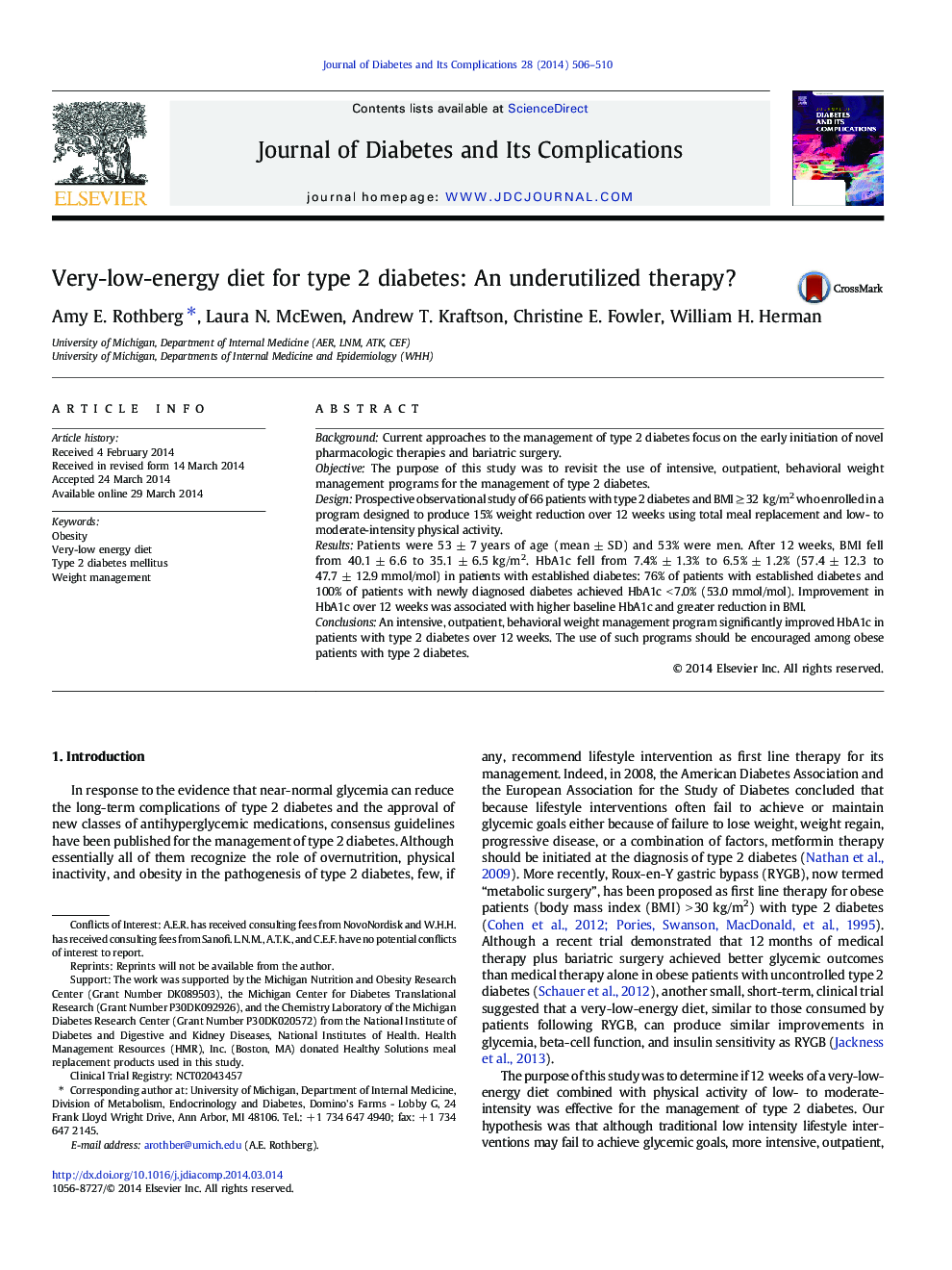| Article ID | Journal | Published Year | Pages | File Type |
|---|---|---|---|---|
| 2804267 | Journal of Diabetes and its Complications | 2014 | 5 Pages |
BackgroundCurrent approaches to the management of type 2 diabetes focus on the early initiation of novel pharmacologic therapies and bariatric surgery.ObjectiveThe purpose of this study was to revisit the use of intensive, outpatient, behavioral weight management programs for the management of type 2 diabetes.DesignProspective observational study of 66 patients with type 2 diabetes and BMI ≥ 32 kg/m2 who enrolled in a program designed to produce 15% weight reduction over 12 weeks using total meal replacement and low- to moderate-intensity physical activity.ResultsPatients were 53 ± 7 years of age (mean ± SD) and 53% were men. After 12 weeks, BMI fell from 40.1 ± 6.6 to 35.1 ± 6.5 kg/m2. HbA1c fell from 7.4% ± 1.3% to 6.5% ± 1.2% (57.4 ± 12.3 to 47.7 ± 12.9 mmol/mol) in patients with established diabetes: 76% of patients with established diabetes and 100% of patients with newly diagnosed diabetes achieved HbA1c < 7.0% (53.0 mmol/mol). Improvement in HbA1c over 12 weeks was associated with higher baseline HbA1c and greater reduction in BMI.ConclusionsAn intensive, outpatient, behavioral weight management program significantly improved HbA1c in patients with type 2 diabetes over 12 weeks. The use of such programs should be encouraged among obese patients with type 2 diabetes.
